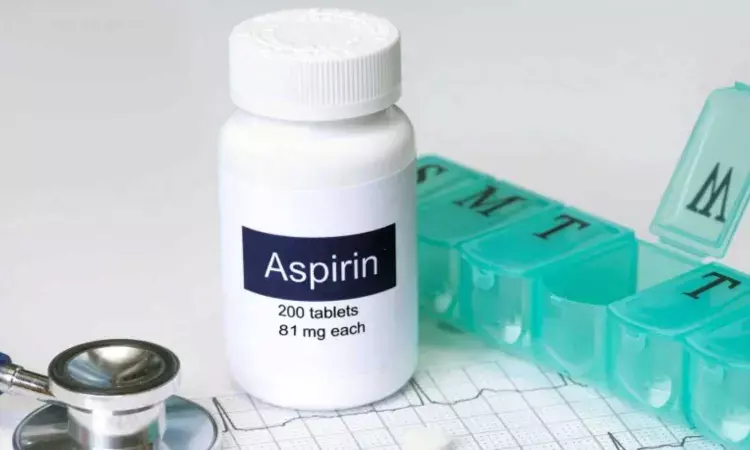- Home
- Medical news & Guidelines
- Anesthesiology
- Cardiology and CTVS
- Critical Care
- Dentistry
- Dermatology
- Diabetes and Endocrinology
- ENT
- Gastroenterology
- Medicine
- Nephrology
- Neurology
- Obstretics-Gynaecology
- Oncology
- Ophthalmology
- Orthopaedics
- Pediatrics-Neonatology
- Psychiatry
- Pulmonology
- Radiology
- Surgery
- Urology
- Laboratory Medicine
- Diet
- Nursing
- Paramedical
- Physiotherapy
- Health news
- Fact Check
- Bone Health Fact Check
- Brain Health Fact Check
- Cancer Related Fact Check
- Child Care Fact Check
- Dental and oral health fact check
- Diabetes and metabolic health fact check
- Diet and Nutrition Fact Check
- Eye and ENT Care Fact Check
- Fitness fact check
- Gut health fact check
- Heart health fact check
- Kidney health fact check
- Medical education fact check
- Men's health fact check
- Respiratory fact check
- Skin and hair care fact check
- Vaccine and Immunization fact check
- Women's health fact check
- AYUSH
- State News
- Andaman and Nicobar Islands
- Andhra Pradesh
- Arunachal Pradesh
- Assam
- Bihar
- Chandigarh
- Chattisgarh
- Dadra and Nagar Haveli
- Daman and Diu
- Delhi
- Goa
- Gujarat
- Haryana
- Himachal Pradesh
- Jammu & Kashmir
- Jharkhand
- Karnataka
- Kerala
- Ladakh
- Lakshadweep
- Madhya Pradesh
- Maharashtra
- Manipur
- Meghalaya
- Mizoram
- Nagaland
- Odisha
- Puducherry
- Punjab
- Rajasthan
- Sikkim
- Tamil Nadu
- Telangana
- Tripura
- Uttar Pradesh
- Uttrakhand
- West Bengal
- Medical Education
- Industry
Fixed-Dose Combination of Aspirin and Pantoprazole Effectively Prevents GI Damage, finds study

A recent phase III clinical trial provided strong results which supports a fixed-dose combination of aspirin and pantoprazole to be more effective and safer than aspirin alone in preventing gastroduodenal mucosal damage in patients using aspirin for the secondary prevention of cardiovascular and cerebrovascular diseases. The findings were published in the Indian Heart Journal.
This double-blind, double-dummy, randomized trial was conducted across multiple centers and it focused on patients who had been taking aspirin at doses of up to 150 mg daily for a period of 3 to 6 months and who were expected to continue this regimen for at least six months due to their need for secondary cardiovascular or cerebrovascular disease prevention. The trial compared the efficacy and safety of a combination therapy with aspirin (150 mg) along with pantoprazole (20 mg) against the use of aspirin alone (150 mg).
A total of 240 patients were included and randomized in a 2:1 ratio, with two-thirds receiving the combination therapy and one-third receiving aspirin alone. Over the course of the 24-week study, the primary endpoint measured was the occurrence of gastroduodenal mucosal damage being monitored at weeks 12 and 24.
The results of the study found that, only 9.7% of patients in the combination therapy group had experienced gastroduodenal events by the 12th week, when compared to 19.7% of the participants taking aspirin alone. This trend continued through the 24th week, where 11.0% of patients in the combination group reported such events against the 22.4% in the aspirin-only group. The statistical significance of these findings was reinforced by a p-value of less than 0.05 at both 12 and 24 weeks highlighting the reliability of the results.
This study highlighted a significant reduction in gastrointestinal injuries among patients in the combination therapy group. This finding is particularly important, given the risks of gastrointestinal complications associated with long-term aspirin use, especially at higher doses. The inclusion of pantoprazole appeared to reduce these risks effectively by providing a protective effect against the erosive action of aspirin on the stomach lining.
Also, both treatment regimens were well tolerated with no significant adverse effects reported in either group. This indicates that the addition of pantoprazole does not introduce any additional safety concerns by making the combination therapy a viable option for patients who require long-term aspirin therapy for secondary prevention but are at risk of gastrointestinal complications.
Reference:
Choudhary, R., Khan, M. A., Dosi, R., Choudhari, S., Pawar, D., Shahavi, V., & Sharma, A. (2024). Fixed dose combination of aspirin and pantoprazole: Results of a multicenter, comparative, randomized, double-blind, double dummy, phase III study in Indian patients. In Indian Heart Journal. Elsevier BV. https://doi.org/10.1016/j.ihj.2024.07.007
Neuroscience Masters graduate
Jacinthlyn Sylvia, a Neuroscience Master's graduate from Chennai has worked extensively in deciphering the neurobiology of cognition and motor control in aging. She also has spread-out exposure to Neurosurgery from her Bachelor’s. She is currently involved in active Neuro-Oncology research. She is an upcoming neuroscientist with a fiery passion for writing. Her news cover at Medical Dialogues feature recent discoveries and updates from the healthcare and biomedical research fields. She can be reached at editorial@medicaldialogues.in
Dr Kamal Kant Kohli-MBBS, DTCD- a chest specialist with more than 30 years of practice and a flair for writing clinical articles, Dr Kamal Kant Kohli joined Medical Dialogues as a Chief Editor of Medical News. Besides writing articles, as an editor, he proofreads and verifies all the medical content published on Medical Dialogues including those coming from journals, studies,medical conferences,guidelines etc. Email: drkohli@medicaldialogues.in. Contact no. 011-43720751


